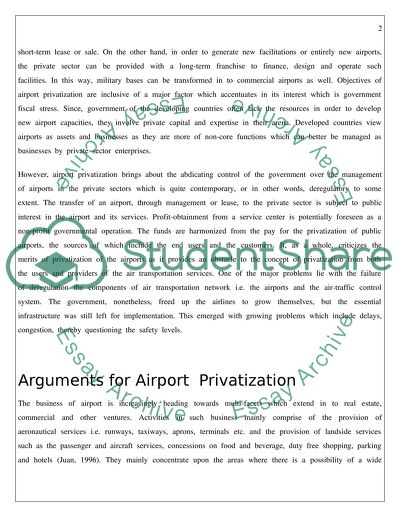Cite this document
(“Debate Over Airport Privatization Essay Example | Topics and Well Written Essays - 2250 words”, n.d.)
Retrieved from https://studentshare.org/miscellaneous/1511696-debate-over-airport-privatization
Retrieved from https://studentshare.org/miscellaneous/1511696-debate-over-airport-privatization
(Debate Over Airport Privatization Essay Example | Topics and Well Written Essays - 2250 Words)
https://studentshare.org/miscellaneous/1511696-debate-over-airport-privatization.
https://studentshare.org/miscellaneous/1511696-debate-over-airport-privatization.
“Debate Over Airport Privatization Essay Example | Topics and Well Written Essays - 2250 Words”, n.d. https://studentshare.org/miscellaneous/1511696-debate-over-airport-privatization.


